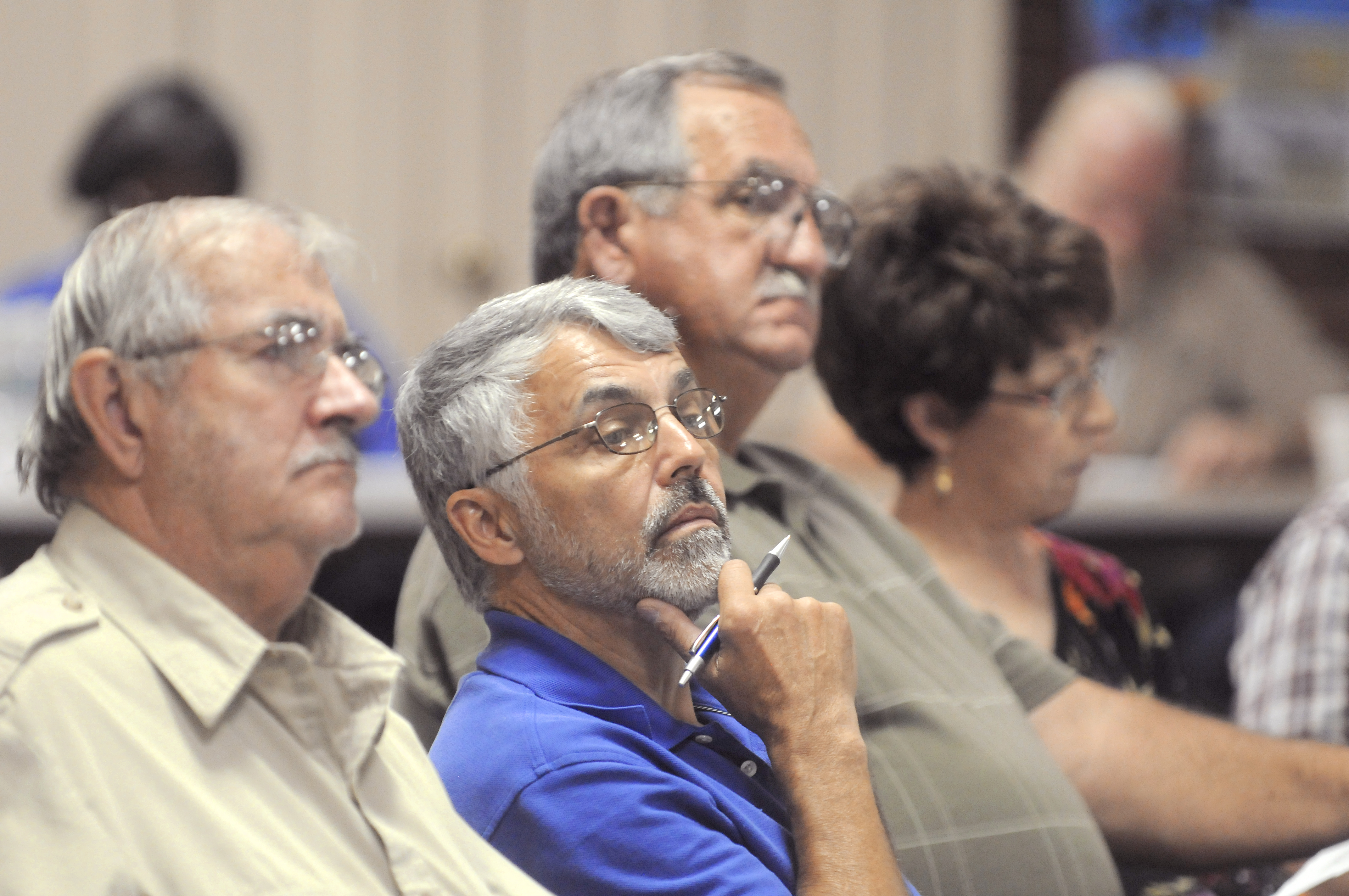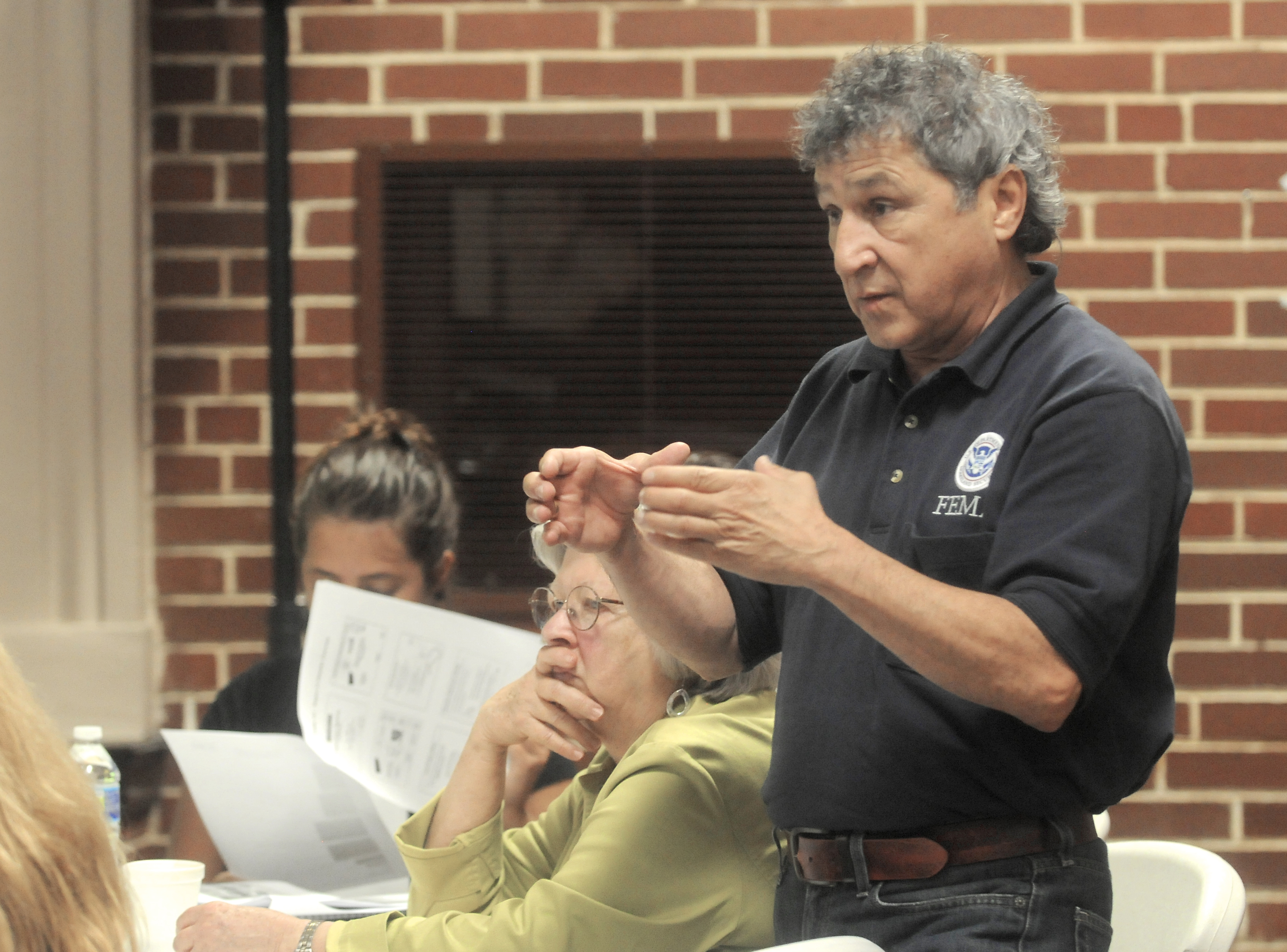Long-term storm recovery workers meet, share ideas
Sunday, July 10, 2011
FOR MORE INFORMATION
Visit the Church World Service Emergency Response Program at www.cwserp.org to find information about long-term disaster recovery, including webinars.Information about the National Voluntary Organization Active in Disaster can be found at www.nvoad.org.The website www.communityarise.com also provides long-term recovery information.
Bryan Crousore has survived Midwestern floods and tornadoes; he knows the slow, often heart-wrenching process of recovery. But he also knows how soon people forget about disasters and move on to the next thing.
"I stopped at an office store to make copies for this seminar and a guy working in the store told me he thought the disaster was long over with," said Crousore, an emergency response specialist with Church World Service. "When the fire hoses are rolled up, most people think it is over. But you are just starting the process that is in some ways the most difficult."
The dozens of people who spent eight hours Saturday learning how best to coordinate long-term recovery efforts for the April 27 storms nodded in agreement. They came from Apison; Cleveland, Tenn.; Ringgold, Ga.; and Trenton, Ga., and from as far away as Greene County in northeastern Tennessee and parts of Mississippi. Most of them are volunteers.
Every day they see their communities with mangled trees marring the landscapes and homes with nothing left but concrete slabs. Every day they hear stories of people struggling to make a new normal from lives ripped apart.
The seminar Saturday, held at First Christian Church in Chattanooga, was a place for them to network with other people working on long-term recovery committees, to hear about ways to find resources, raise money and coordinate volunteers, and to ask questions.
In addition to the Church World Service, members of the Federal Emergency Management Authority, the Christian Reformed World Relief Committee, the Coordinated Assistance Network, Lutheran Disaster Response, Presbyterian Disaster Assistance and the United Methodist Committee on Relief were on hand to provide information and teach break-out sessions.
"You have to remind yourself that it is a marathon," said Corey Divel, who serves on the Long Term Recovery Organization in Bradley County. "Being able to network today and to get a list of resources; it was a great opportunity."
Most of the counties hit by the April 27 storms have formed local voluntary organizations active in disaster - known as VOADs - that are identifying unmet needs in their communities. Many of the victims may not have insurance or received little help from FEMA. The groups in the tri-state area have identified hundreds of families with more than $1 million total in unmet needs.
According to national statistics, about 15 percent of the most needy victims in disasters do not receive help from local or national groups. Crousore and others attending the Saturday seminar said the goal of their groups is to make that number as low as possible.
Phil Ledbetter, who heads Catoosa County's group, said it already has raised about $200,000 of the $750,000 needed to help the rebuilding and has scheduled several volunteer groups to come to help rebuild houses. His group has been assisted by the United Methodist Committee on Relief in Georgia.
"Today was a good checklist for us -to see what we've already done and what we still need to do," Ledbetter said.
Rebecca Whelchel, executive director of Chattanooga-based Metropolitan Ministries, said her agency has been involved in relief work for most of the tri-state area since the tornadoes. She took dozens of notes Saturday, leaving with a long to-do list for the weeks to come.
"We are in this for the long haul, but we have to figure out exactly what this means," she said. "Today was terrific. It was great to see how many people were here who could have been doing something else, who are trying to make things better."
Contact Mariann Martin at mmartin@timesfreepress.com or 706-980-5824.

